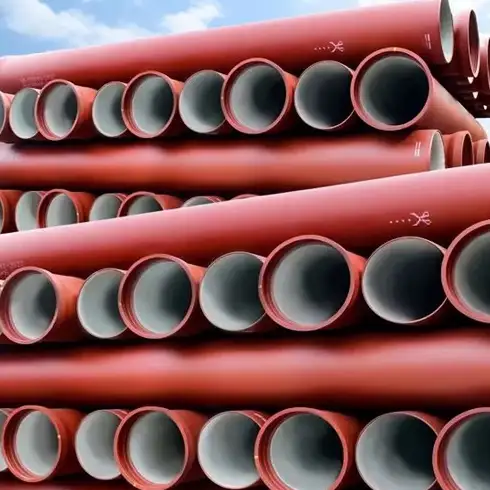When it comes to selecting ductile iron (DI) pipes, particularly the 100mm DI K7 pipe, understanding the pricing structure is crucial for both procurement specialists and project managers. The 100mm DI K7 pipe is widely used for water distribution systems, offering both reliability and durability. However, its price varies significantly depending on the country of purchase, local manufacturing conditions, and the specific suppliers involved. In this article, I will explore the factors that influence the price of 100mm DI K7 pipes, provide a pricing comparison for China, India, and the United States, and offer a case study to help clarify real-world applications.
Key Factors Influencing 100mm DI K7 Pipe Pricing
Several factors impact the cost of DI K7 pipes:
-
Material Quality
The price of DI K7 pipes is heavily influenced by the quality of the raw materials used. High-quality ductile iron offers superior strength, resistance to corrosion, and longevity, making it a preferred choice for critical infrastructure projects. -
Manufacturing Processes
The complexity and efficiency of the manufacturing process can significantly affect the final price. More advanced casting and heat treatment processes, such as those used for K7 grade pipes, generally increase production costs. -
Transportation and Logistics
The geographical location of the manufacturer and the transportation method also play a role. Pipes produced in distant locations often have higher shipping costs, which are passed on to the buyer. -
Volume of Purchase
Large-scale orders typically result in price reductions. Bulk purchasing benefits both the supplier and the buyer, making it a common practice in large infrastructure projects. -
Market Demand
Local market demand can cause fluctuations in prices. High demand in one region may lead to price hikes, while areas with lower demand might offer competitive pricing.
Pricing Comparison for 100mm DI K7 Pipes
Here’s a comparison of 100mm DI K7 pipe prices across three major regions: China, India, and the United States.
| Country | Average Price per Meter | Description |
|---|---|---|
| China | $80 – $110 | Prices in China are often the most competitive due to lower labor costs and a large manufacturing base. However, shipping fees may vary depending on the destination. |
| India | $100 – $130 | India offers competitive pricing due to a strong local manufacturing base. However, logistics can increase the cost when exporting to other regions. |
| United States | $150 – $200 | Prices in the U.S. are generally higher due to labor and material costs, but quality standards and service are typically top-notch. |
Case Study: A Real-World Example
Let’s take a closer look at a project that involved the procurement of 100mm DI K7 pipes for a municipal water supply system in India. The project involved sourcing pipes from both China and India.
-
Project Overview:
The project required 1,000 meters of 100mm DI K7 pipe for the construction of a new water distribution network. The initial decision was to source pipes from local suppliers in India, but after evaluating the costs, the procurement team decided to compare prices from Chinese suppliers as well. -
Challenges Faced:
The main challenge was the transportation cost and customs duties for importing from China. However, Chinese suppliers offered a much lower base price, which made up for the additional logistics costs. -
Outcome:
After comparing total costs, including shipping, the final decision was to source 60% of the pipes from China and 40% from India. The overall cost savings were significant, without compromising the quality of the pipes.
Frequently Asked Questions (FAQs)
-
What is the difference between DI K7 pipes and other grades of DI pipes?
DI K7 pipes are specifically designed to meet higher strength and pressure standards, making them suitable for high-pressure applications. They are more robust than lower grades like K9, offering better resistance to stress and corrosion. -
How long do DI K7 pipes last?
With proper maintenance, DI K7 pipes can last over 50 years, making them a durable choice for water and sewage systems. Their longevity is largely due to the corrosion-resistant properties of ductile iron. -
What are the common applications of 100mm DI K7 pipes?
These pipes are commonly used in municipal water supply systems, irrigation networks, and sewage systems. Their strength and resistance to wear make them ideal for high-pressure applications. -
Can 100mm DI K7 pipes be used in corrosive environments?
Yes, DI K7 pipes are highly resistant to corrosion, especially when coated with protective layers. However, for extremely aggressive environments, additional coatings like epoxy may be applied for added protection. -
Are there any maintenance requirements for DI K7 pipes?
While DI K7 pipes require minimal maintenance, it is recommended to inspect the system periodically for any signs of corrosion or damage. Proper installation is key to ensuring longevity.

